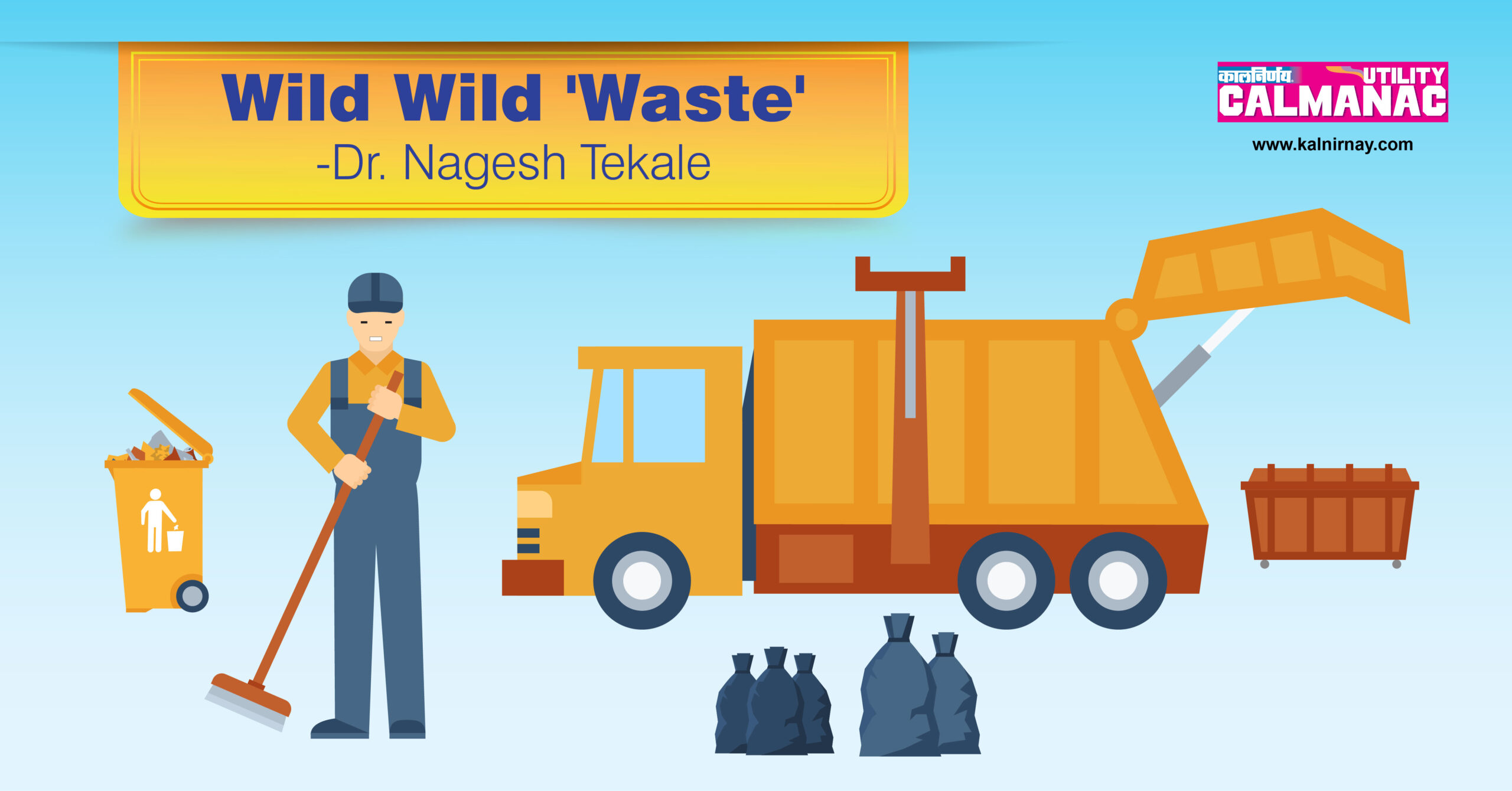Waste is everything that no longer has a use or purpose and needs to be disposed of in the right scientific way, Dr Nagesh Tekale while suggesting effective ways to manage waste.
We keep our house clean by putting unwanted things(Waste) outside in the dustbins. What happens to this? We never bother, are not even perturbed. While walking on the road, in the market garden and premises, we throw the things carelessly. Circumstances force the Municipal authorities to collect the waste to dispose of it at badly managed dumpsites resulting in a generation of methane gas that enhances city temperature and the constant threat of fire.
In India, we generate 62 million tons of waste annually. Only 70 per cent is collected and 13 per cent is processed. Our today’s lifestyle is responsible for generating the waste. This includes water, electricity papers, consume soft drinks, packed food and throw excess cooked food in bins.
Waste Management is a major challenge for us because we neglect the potential value of waste. The untreated waste cause air, water and soil pollution create health and environmental problems by promoting Chikungunya, Dengue and Malaria.
In true sense, it is no problem at all, rather it’s an opportunity for the country like India to generate jobs and wealth provided it is managed scientifically and professionally by passing through under recycling, upcycling and composting
The Importance of Recycling, Upcycling and Composting
Recycling is the reuse process by converting unwanted material into new material. It is the key to modern waste reduction and the third component of the Reduce, Reuse and Recycle. Used office paper is converted into cardboard is recycling.
The concept of upcycling relates to the process of converting waste material into new material or products of quality having the best environment values compare to their previous use. Unwanted plastic bottles are recycled into plastic sheets durable threads are made to design the chairs, mats, baskets etc. is called upcycling. Used X-ray films are cut for designing greeting cards. This is a classic example of waste recycling-upcycling.
Composting is the recycling process in which biological wet waste is aerobically converted into a soft black-brown substance called compost. When this compost is used in nutrition gardens then it becomes upcycling.
Recycling, Upcycling and Composting are the three best practices which reduce waste, greenhouse gases and save energy. This also creates skilled jobs and enhance organic farming.
The Resources of Recycling, Upcycling and Composting
Recycling concept is based on waste to wealth. The used papers, newspapers, metal pieces, plastic bags, containers, tins, glass pieces, used clothes etc. are some of the resource materials used for recycling.
Upcycling is the next step of recycling in which many new innovative products are designed from the recycling materials such as plastic powders, threads, tablets, paper boards, cardboards, broken concrete, tiles, plywood pieces, cockpit etc. There is a maximum job opening in upcycling hence is a part of skill India Mission.
The legal aspect of waste management on an individual level
The waste management rules and regulation are newly designed in 2016 by Govt of India. It is mandatory to each house/flat/family/individual to segregate the waste at source itself into green, blue and black bins. Composting of wet waste should be done within the premises of housing societies. It is strongly recommended to close all dumping sites by 2022. The burning of unwanted scrap in public places, on-road and farm is strictly prohibited. The product generated by the composting unit should be purchased by fertilizer units should be distributed to the farmers along with commercial fertilizers in the ratio of 3:3. The society can punish the individual flat owner with a minimum fine for not following the rules of segregation. The societies are under the control of a corporation for penalties.
Dumping grounds are black spots of urban environmental life. We have to reduce them to ground zero. Its present management is based on 500-gram wet scrap/day/family. This has to come down to 100-gram day/family and it is possible when its segregation is carried out at source itself. The authorities take care of biomedical scrap is generated in the flat.
The major issue of e-waste needs urgent attention at an individual level. Used cell phones, cameras, TV, Computers, Mixtures, Grinders, and other electronic devices come under e-waste. Handover them for recycling and upcycling. By doing this noble job, we are making our surrounding environment safe and providing skilled jobs to thousands of young youth. It is not our commitment to society and nation too?
To read more English blogs, visit our blog section.
Dr Nagesh Tekale

